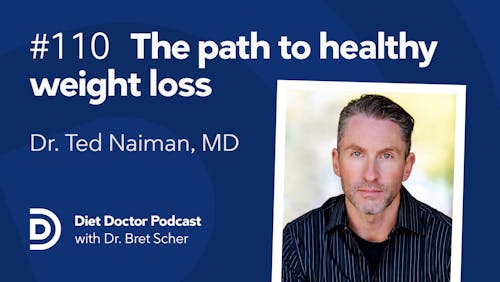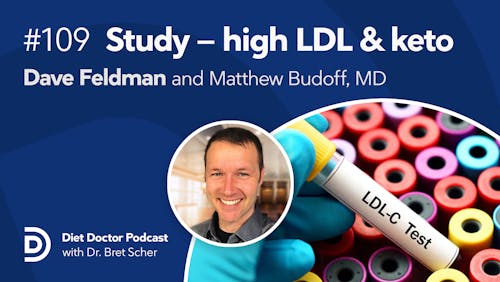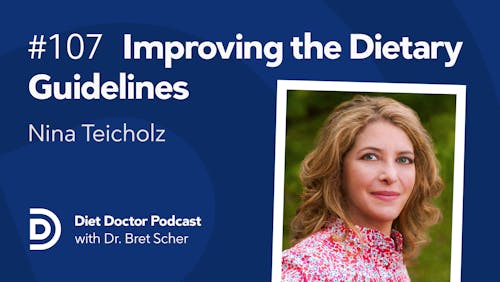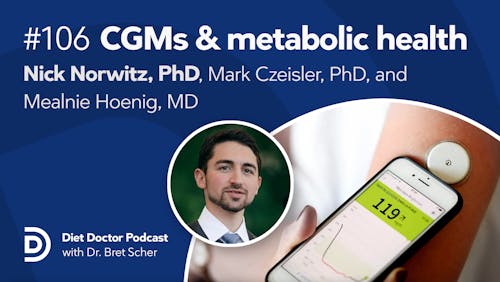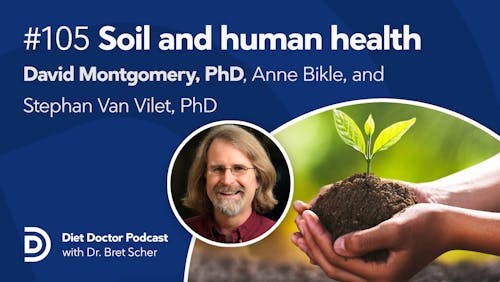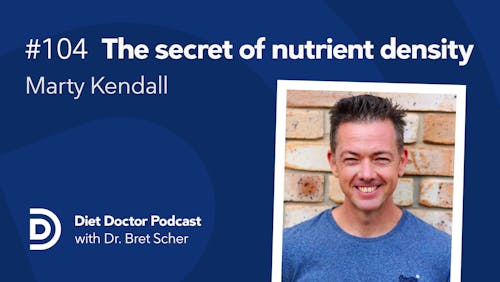Diet Doctor Podcast #80:
The science of time-restricted eating
It’s rare in medicine to find an effective treatment that is incredibly simple to do with virtually no side effects. According to Satchin Panda, PhD, time-restricted eating (TRE) may fit those criteria. Panda is a world-renowned researcher in circadian rhythms and time-restricted eating. His work, starting in mice and transitioning to humans, has provided the scientific backing for the popular recent health trends of intermittent fasting and time-restricted eating.
Panda discusses his amazing initial research and how, initially, he had plenty of skeptics and critics. Interestingly, it was critics that inspired him to conduct some of his most impactful human research.
Panda knows the science behind time-restricted eating better than anyone. He uses that knowledge to give his tips on why we benefit from TRE, what the best schedule is for TRE, and what else we should be doing to protect our circadian clock.
About the video
Virtual podcast recorded in July 2021, published in September 2021.
Host: Dr. Bret Scher
Producer: Hari Dewang
Table of contents
00:00 Introduction
02:16 Welcome, Satchin Panda, PhD
03:00 Panda’s work on circadian rhythm
09:52 Transitioning to human studies
18:40 Why is time-restricted eating (TRE) so effective?
25:16 The concern with muscle mass
28:33 How long is the ideal TRE duration?
34:13 When is the ideal eating window?
38:42 Some practical tips to enhance the circadian rhythm
43:05 Where the future holds for TRE research
46:09 Closing
It’s rare in medicine to find an effective treatment that is incredibly simple to do with virtually no side effects. According to Satchin Panda, PhD, time-restricted eating (TRE) may fit those criteria. Dr. Panda is a world-renowned researcher in circadian rhythms and time-restricted eating. His work, starting in mice and transitioning to humans, has provided the scientific backing for the popular recent health trends of intermittent fasting and time-restricted eating.
Panda discusses his amazing initial research and how, initially, he had plenty of skeptics and critics. Interestingly, it was critics that inspired him to conduct some of his most impactful human research.
Panda knows the science behind time-restricted eating better than anyone. He uses that knowledge to give his tips on why we benefit from TRE, what the best schedule is for TRE, and what else we should be doing to protect our circadian clock.
About the video
Virtual podcast recorded in July 2021, published in September 2021.
Host: Dr. Bret Scher
Producer: Hari Dewang
